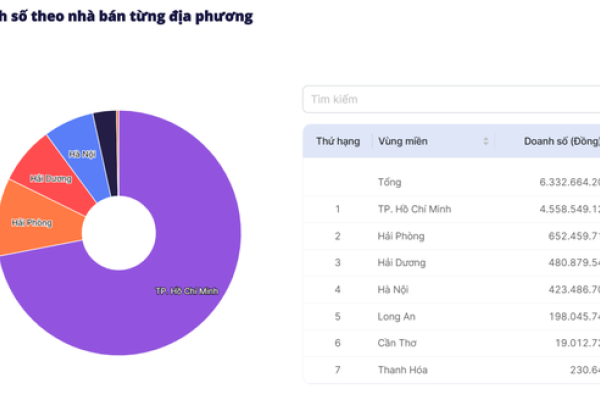
10 Strategic Tips To Build Strong Brand Identity (With Examples)
In a bustling marketplace teeming with competition, it’s crucial to not just excel but to distinguish yourself for survival. This highlights the vital need to establish a distinctive brand identity that not only sets you apart but also deeply connects with your intended audience. A clearly defined brand identity forms the bedrock of your business image, nurturing customer loyalty and steering toward enduring success. While crafting such an identity may appear daunting, it’s entirely feasible with a strategic mindset and meticulous execution.
Tips for building a strong brand identity
Creating a strong brand identity involves a deliberate and strategic process that begins with comprehensive market research and extends to the development of key brand elements such as the brand name, mission, vision, values, and visual identity.
Uniform brand image
Maintaining a consistent brand image across various social media platforms enhances recognition and nurtures enduring customer relationships. Guidelines on visual branding elements such as colors and fonts aid customers in identifying your brand easily.
Consistent brand expression
Establishing a uniform brand voice and tone across social media platforms is pivotal. Businesses benefit from using AI-generated social media posts for efficiency, personalized content, variety, optimization, and cost-effectiveness. However, maintaining authenticity and human oversight is essential to ensure the content aligns with the brand. For instance, McDonald’s maintains a lively, informal tone across all channels, enriching its brand persona.
Engaging content creation
Developing content specifically designed to connect with your desired audience is vital. Red Bull, known for its daring ethos, showcases visually arresting, excitement-evoking content across platforms such as Instagram.
Dynamic engagement with the community
Actively participating in discussions and responding to feedback from your audience nurtures their allegiance. By addressing comments and attending to concerns, you foster a community ethos surrounding your brand.
Tactical platform selection
Selecting the right social media platforms aligned with your target audience’s preferences and your business goals is essential. Examining competitors’ strategies can offer valuable insights to inform your platform selection process.
Optimized profiles
Enhancing social media profiles with clear visuals, compelling bios, and relevant links enhances credibility and engagement. Nike’s Instagram profile serves as an exemplary model of optimized branding.
Effective utilization of social media tools
Using all-in-one social media analytics tools for analyzing all social media platform data in one place to gauge all types of engagement & conversion metrics in real time.
Continuous monitoring and updating
Maintaining a steady watch on social media performance aids in honing strategies and remaining in sync with audience preferences.
Teamwork and alliances
Teaming up with influencers and prominent figures within your field can enhance brand visibility and foster the creation of user-generated content.
Precise and direct communication
Guaranteeing clarity and brevity in interactions with your audience via captions, comments, and direct messages enhances brand messaging and boosts engagement.
Examples of effective brand identities
Examining examples of brands that have successfully established strong brand identities can provide inspiration and insights into best practices. Brands such as Slack, Spotify, LEGO, Nike, and Starbucks have effectively leveraged their brand identities to connect with their audience and drive success.
-
Slack: Tailors content to diverse demographics, fostering inclusive engagement with productivity tips and customer stories.
-
Spotify: Personalizes content with features like “Wrapped,” tapping into the universal love for music.
-
LEGO: Showcases creativity with user-generated challenges and imaginative content.
-
Nike: Empowers audiences by spotlighting athletes and supporting social causes.
-
Starbucks: Inspires with colorful photos, seasonal campaigns, and inclusive messaging.
-
Shopify: Educates and entertains with bright, uplifting content while championing social and environmental issues.
-
Square: Puts clients first, amplifying their experiences and supporting social movements.
-
Ben & Jerry’s: Balances product promotion with activism, resonating with socially-conscious audiences.
-
Glossier: Engages with real people through user-generated content and product feedback.
-
GoPro: Tells compelling stories through diverse social media platforms, inspiring users to capture their adventures.
-
Shutterstock: Inspires creativity with authentic imagery and innovative services like Newsroom.
Conclusion
A strong brand identity is the cornerstone of a company’s image, fostering lasting relationships and customer loyalty. Creating this identity may seem challenging, but with strategic planning and careful execution, it is attainable. Through market research and the development of key brand elements, you can build a resilient identity that endures.
Consistency is crucial, whether in maintaining a uniform brand image across platforms or establishing a consistent voice and tone. Active engagement with your audience becomes a mindset, not just a strategy, fostering a community around your brand.
Choosing the right social media platforms, optimizing profiles, and using platform-specific tools enhance visibility and engagement. Continuous monitoring and updating ensure strategies align with changing audience preferences and market trends.
Strategic partnerships with influencers and thought leaders, along with clear communication, strengthen your messaging and forge deeper connections with your audience.
By drawing inspiration from successful brands like Slack and Nike, we can learn best practices and innovative approaches. These brands showcase the power of a well-crafted identity in driving success and nurturing meaningful relationships.
Bài viết liên quan













